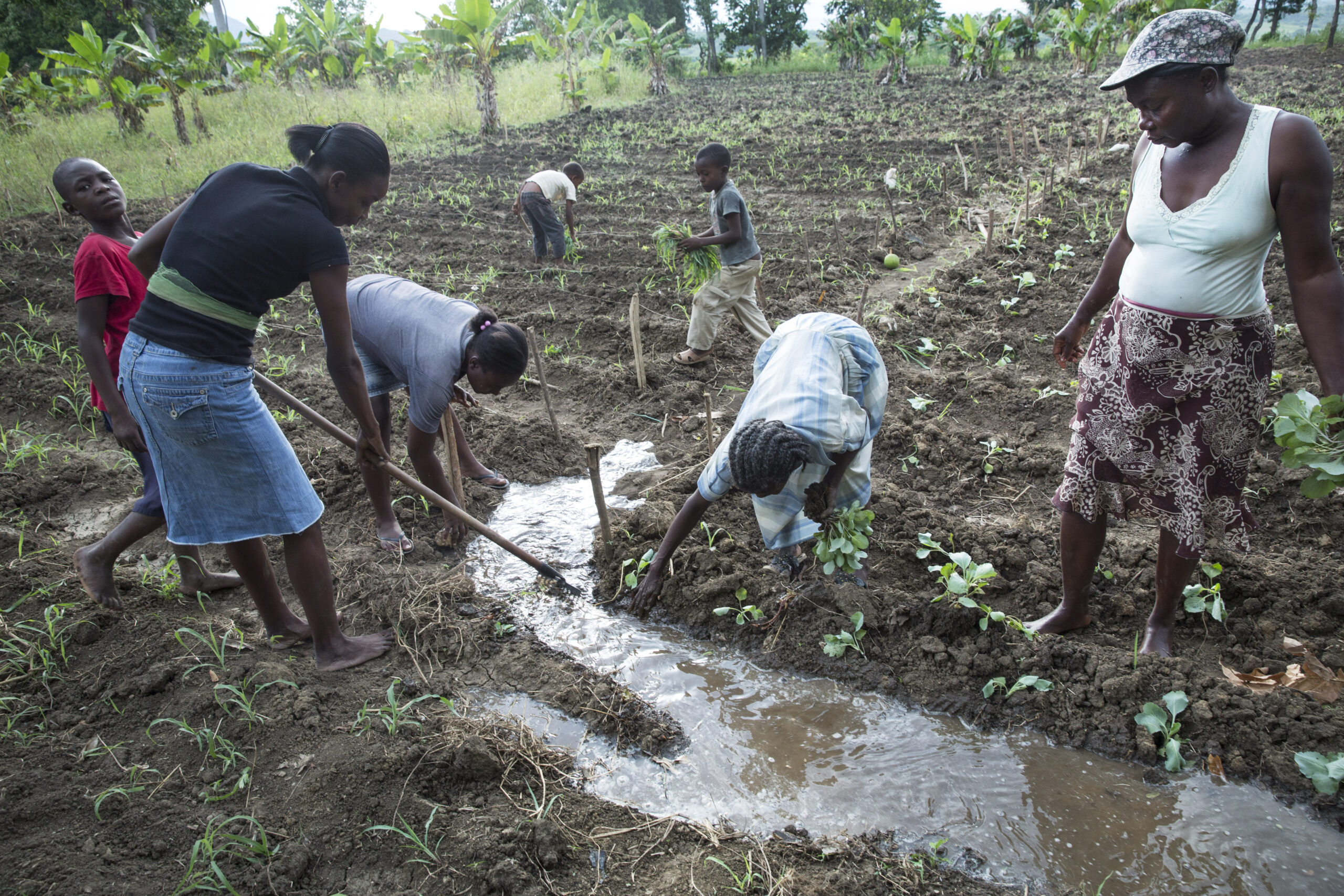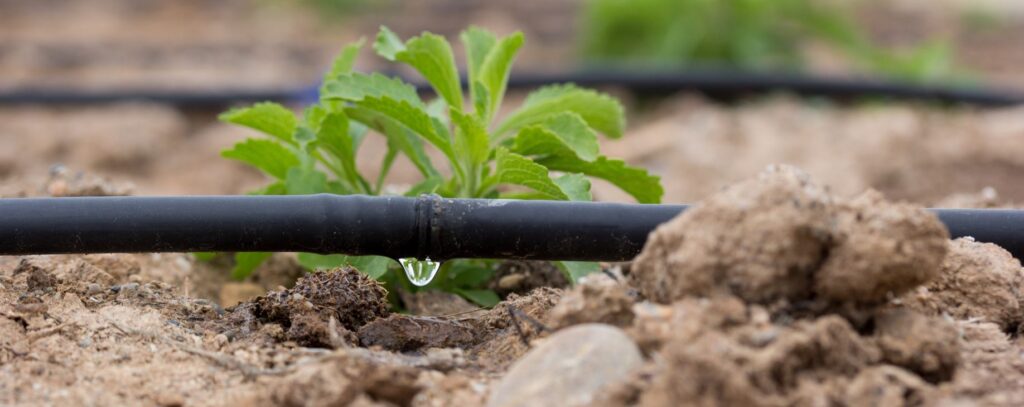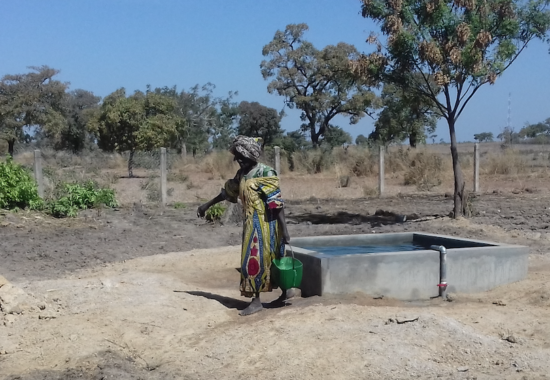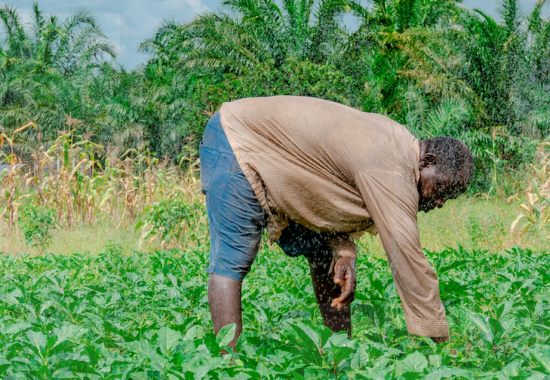Enough food, throughout the year. This not only requires water, but also a properly thought-out agricultural strategy. Together with our partners, we are looking for techniques that are water-efficient and do not pollute our water resources.
First and foremost, we make water available for agriculture in regions that suffer from food shortages. Efficiency is also an important point of attention: producing (more) with less water. We also strive for the smallest possible environmental impact: agriculture often goes hand in hand with forest clearing, and pesticides and fertilisers that pollute water resources. When choosing agricultural techniques, we take climate challenges into account and anticipate a disrupted environment.
Together with our partners, this approach allows us to improve the well-being of communities.

What we do?
- Irrigation: from pumps and channels to drip irrigation and irrigation methods that are adapted to a changing climate;
- Water storage in valleys, wetlands and lakes: this water can then be used in fields during periods of drought;
- Cultivating adapted crops, which are drought resistant, among other things;
- Organic farming and agroforestry, for balanced soil and limited environmental impact;
- Advance water reuse and limit water loss;
- Limit erosion, including terrace construction and infiltration channels;
- Stimulate policy for an agricultural sector that uses water resources sparingly, in Belgium and in other parts of the world;
- (…)




